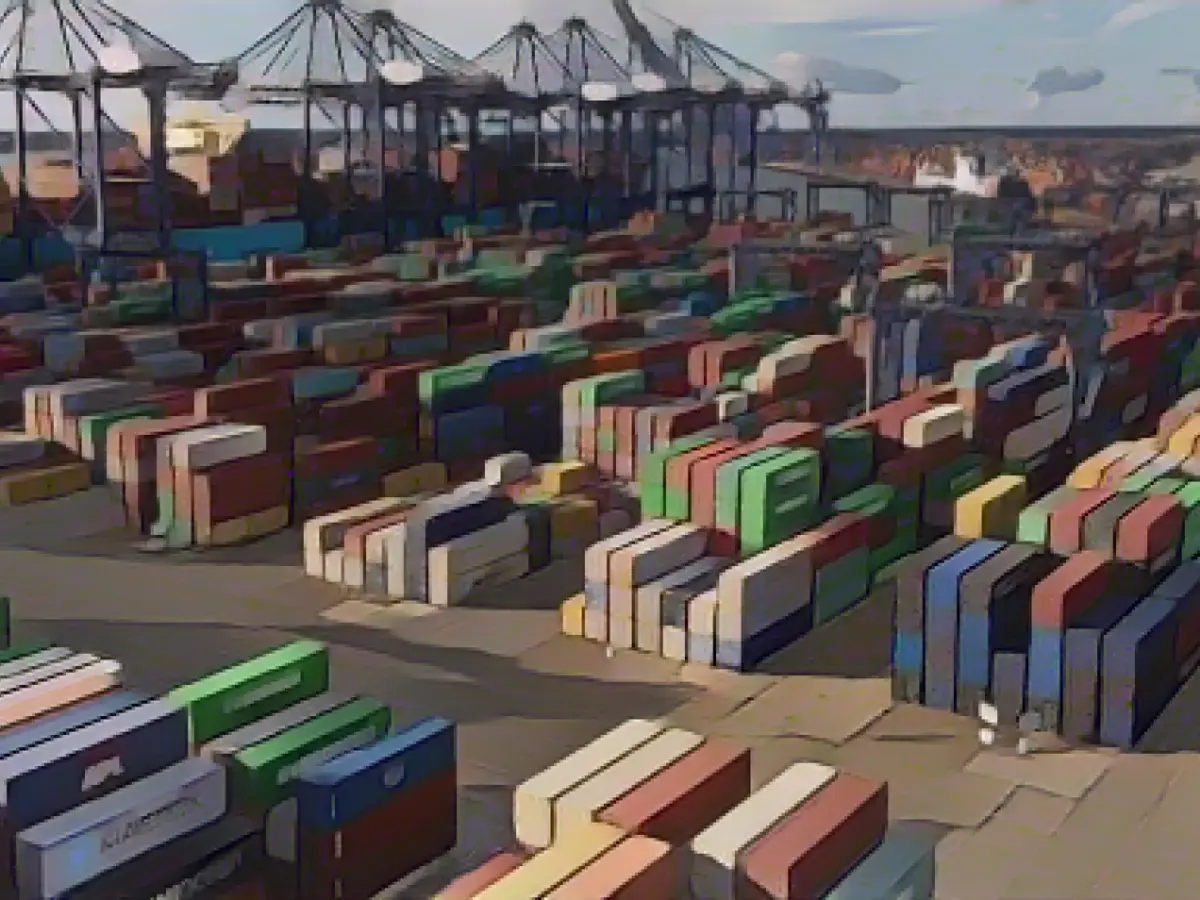Post-Brexit: Three Years of Economic Challenges and Concerns for Great Britain
Three years on from Brexit, Great Britain is still grappling with a myriad of economic issues and concerns, primarily related to trade with the EU. According to Miguel Berger, the German ambassador in London, smaller companies have bore the brunt of these problems, with many of them having to call it quits . Conversely, larger companies have managed to adapt, viewing the situation as just another cost factor .
Estimates suggest that bilateral trade has taken a significant hit, declining by approximately 10-15% since Brexit. As a result, the UK has dropped out of the top ten of Germany's most important foreign trade partners .
The exit from the EU on January 1, 2020, marked the end of Great Britain's membership of the EU customs union and single market. This transition led to considerable delays in trade, particularly at the outset . However, the German-British Chamber of Industry and Commerce (AHK) in London reports that the economy has largely adjusted to these new conditions . Trading activities are even showing signs of a rebound, offering hope for an eventual recovery from the Brexit slump in the medium term .
Industries with strong potential for growth include renewable energies, where German expertise can help tap into the UK's vast resources .
New hurdles may arise for EU food exporters, as the UK plans to introduce import controls for animal and plant products . While this change may pose challenges, the overall impact on the German-British economy is expected to be relatively small . Conversely, British businesses are expressing more serious concerns. Industries like agriculture and chemicals, particularly affected by new Brexit tariffs, now face additional reporting obligations, such as supply chain tracking, CO2 emissions, and plastic packaging use .
The British Chambers of Commerce (BCC) calls for the UK government to adapt its rules to align with those of the EU to help address these concerns .
Another contentious issue is the residency regulations since Brexit. Stricter rules make it harder for skilled workers to undertake short-term assignments and poses higher relocation costs for foreign employees . The Conservative British government recently announced plans to significantly increase the required annual income for foreign workers to limit net immigration, which will further impose obstacles, especially for aspiring young professionals .
The proposed changes have diminished the UK's appeal, and academic exchange has suffered significant losses . Companies in the UK are finding it increasingly challenging to manage complex, constantly changing visa options for offering limited-term internships or traineeships to students .
As new regulations related to competition, employment, and consumer protection take effect in the UK, companies should remain vigilant and prepared to adapt quickly to changes. This will inevitably bring additional bureaucracy and costs, at least in some areas .
Enrichment Data
Three years after Brexit, Great Britain continues to encounter numerous challenges, primarily in relation to trade and commerce with the EU. Some of these ongoing concerns include:
- Regulatory divergence and Trade Barriers:
- The departure from the EU has introduced new regulatory divergence, which has led to increased business costs and trade disruption. Non-tariff barriers like customs checks, rules of origin requirements, and complex documentation have amplified challenges for exporters, particularly in sectors like manufacturing and food .
- Labour market impacts:
- Ending free movement between the UK and EU has led to labour shortages in critical sectors that rely on migrant workers, such as agriculture, healthcare, and hospitality . The restrictions have pushed up operating costs and limited output, further straining the UK economy.
- Productivity issues:
- Brexit has exacerbated long-standing productivity issues in the UK. Trade inefficiencies, labour shortages, increased costs, and diminished output have all contributed to a slowdown in investment and capital accumulation .
- Regulatory clarity and investment challenges:
- Uncertainty surrounding future trade and regulations has stifled foreign direct investment and hindered business investment decisions. To restore confidence, policymakers must prioritize providing regulatory clarity and strengthening trade ties with the EU .
- Inflation and economic growth:
- The UK economy faces the risk of stagflation, characterized by weak growth, rising unemployment, and persistent inflation. Inflation is forecast to surpass the 2% target in 2025 due to factors like increased gas prices, energy costs, and employer National Insurance Contributions (NICs) ,.
- Impact on Small and Medium Enterprises (SMEs):
- SMEs have been disproportionately impacted by non-tariff barriers introduced by the Trade and Cooperation Agreement . Many have opted to halt exports altogether due to the challenging customs and regulatory requirements, particularly in the manufacturing sector .
- Potential for a Single Market Agreement:
- There is ongoing debate about the possibility of a single market agreement between the UK and the EU. While this arrangement would not include a customs union, it could help simplify some trade processes and address some of the current trade frictions. However, achieving this would require significant concessions on both sides, notably on free movement and regulatory alignment .
References
"Brexit: Warning for German companies – German economy is also impacted by the British departure from the EU " (Accessed on November 20, 2022).
"Brexit impact: an evidence-based overview of the effects of Brexit on the UK regional economies " (Accessed on November 20, 2022).
"Brexit threatens the UK’s productivity and growth potential " (Accessed on November 20, 2022).
"Brexit and the risk of stagflation " (Accessed on November 20, 2022).
"Single Market Access for the UK " (Accessed on November 20, 2022).




